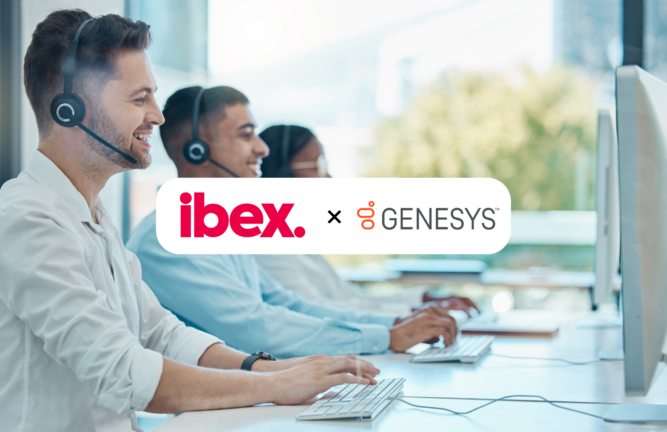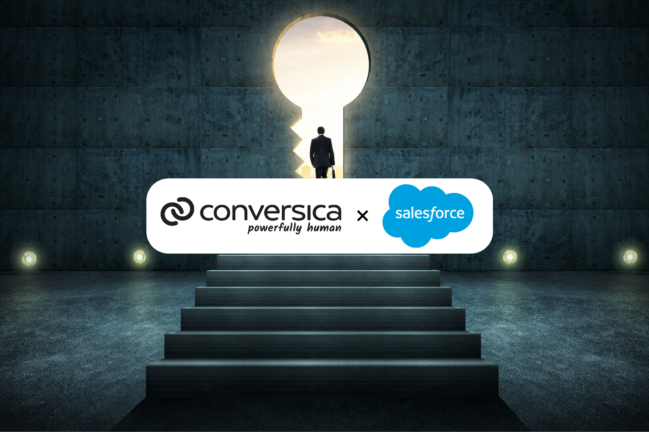In the last few years, artificial intelligence (AI) has gained significant momentum, and by 2025, it is predicted that Gen AI will be a workforce partner for 90% of companies worldwide. AI as a whole has been projected to deliver $1 trillion of additional value each year, of which customer service accounts for a significant portion.
AI has been established as an invaluable business tool - when implemented properly, we’ve seen it improve operational efficiency, reduce costs, and support productivity. Businesses of all sizes and industries are starting to identify how they can integrate AI into their daily operations.
But in our experience, while many businesses see the potential, particularly those with consumer-facing operations, there is a basic question they are still grappling with; where do I start?
Evaluating where you are today
To maximise the benefits AI offers, your starting point needs to be establishing how it can best support your existing operations. To do this, evaluate your business's current procedures and processes, and identify time-consuming tasks involving repetitive actions.
This is because the culmination of generative and conversational AI means that repetitive, or learnable tasks can be automated, saving you resources and time. For instance, chatbots empowered with gen AI can look at the customer's question, couple this with other relevant information such as past purchases, and then identify what the customer is trying to accomplish, or the intent.
So, ask yourself, where can we streamline processes for customers or agents? What are our most asked inquiries? Can this information be delivered to customers independent of an agent? What tasks reduce agents' availability to speak with customers?
Once you have established these areas of potential, you’re well-equipped to implement AI in the most significant and valuable way.

Start small with a scalable approach
Having established areas of your operation that can be supported by AI, ensure you’re initial implementation is gradual to minimise disruption to your wider customer service.
At first, try a customer service solution that avoids steep learning curves for all departments. Do not make any drastic changes, adapt and enhance your current Customer Relationship Management (CRM), for example, start small with just your customer support’s scheduling team. Consider doing this as a pilot project - gather feedback from employees and customers to ensure that this AI solution meets their expectations and needs.
Once that specific team starts leveraging the benefits of the AI technology, expand and adapt it to the rest of the department and other teams.
Build your AI model with quality data
To make sure that you’re using AI in the most effective way possible, ensure that the data that underpins it is relevant. Opt for a solution that enables tailored customisation of your AI model’s scope of knowledge. Too often, AI is understood as a one-size-fits-all solution where generic, off-the-shelf AI tools are suitable. However, AI can be trained in a way that caters to your specific business needs.
While accessing the entire breadth of AI capabilities may be beneficial in select cases, for most businesses, it's crucial to constrain the AI’s information scope to suit your organisation’s specific needs. This way, you can quickly leverage all your organisation’s existing organisational assets (PDFs, website, support articles, FAQs etc.) and the AI will respond in full alignment with your organisation’s business policies, security and compliance.
Finding your perfect customer service platform
Every business will have different operational priorities. There are a multitude of AI offerings on the market, to maximise your investment, you must select one that aligns with your operational priorities.
As you navigate this decision-making, consider using this checklist to inform your selection: Firstly, can this solution be integrated into your current internal systems? This is an especially important consideration if you have a large operation, and need to upgrade your solution with minimal disruption.
Secondly, how customisable is it? And what level of customisation would you need from an AI tool? Some industries and businesses will require very tailored, customised AI tools. Other sectors, such as retail, likely need a lesser degree of customisation as there is little industry variation in customer service needs.
Lastly, what channels will this AI be utilised in, and are they compatible? What credentials does this AI partner have? Do they have diverse industry experience developing bots for real-world cases and a proven track record of supporting business growth?
Measure the right KPIs using the right data
At its simplest, obstacles to business growth - like low agent productivity or poor customer satisfaction, are manifestations of daily issues and challenges felt by agents and customers. To promote growth and business success, make sure that you leverage KPIs to track daily issues and challenges, which, in turn, allow you to make operational changes that support your wider operation.
For instance, if you discover that your agents spend a lot of time on administration after a call, that is directly linked to lower efficiency and higher costs; in that scenario, the best KPI to measure is ”time spent by agent” scores. Or, if your business needs to improve the quality of engagement (as opposed to volume) with better soft skills, service level and access to up-to-date knowledge, then measuring CSAT is the correct KPI.
In 2024, autonomous agents have taken center stage - sophisticated bots or automations capable of handling end-to-end tasks independently. As these autonomous agents become ubiquitous, they will form the backbone of enterprises, delivering substantial cost savings and unparalleled operational efficiency.
This accessible, smart technology is at the beginning of its development and it’s only going to get more intelligent from here. Those who don’t start learning how to utilise it, risk being left behind.
As the current CEO of CommBox, one of the leading AI-based customer service and engagement solutions in our market, Dvir has over two decades of experience in technology innovation and product strategy, specifically in a competitive market of customer service, support, and engagement. Dvir has pioneered several innovations in the realm of CX technologies, guiding them from their inception and transforming them into award-winning global CX and AI enterprise solutions. His unwavering passion lies in bringing together cutting-edge technologies and people, catalyzing a revolution in the customer experience domain.









